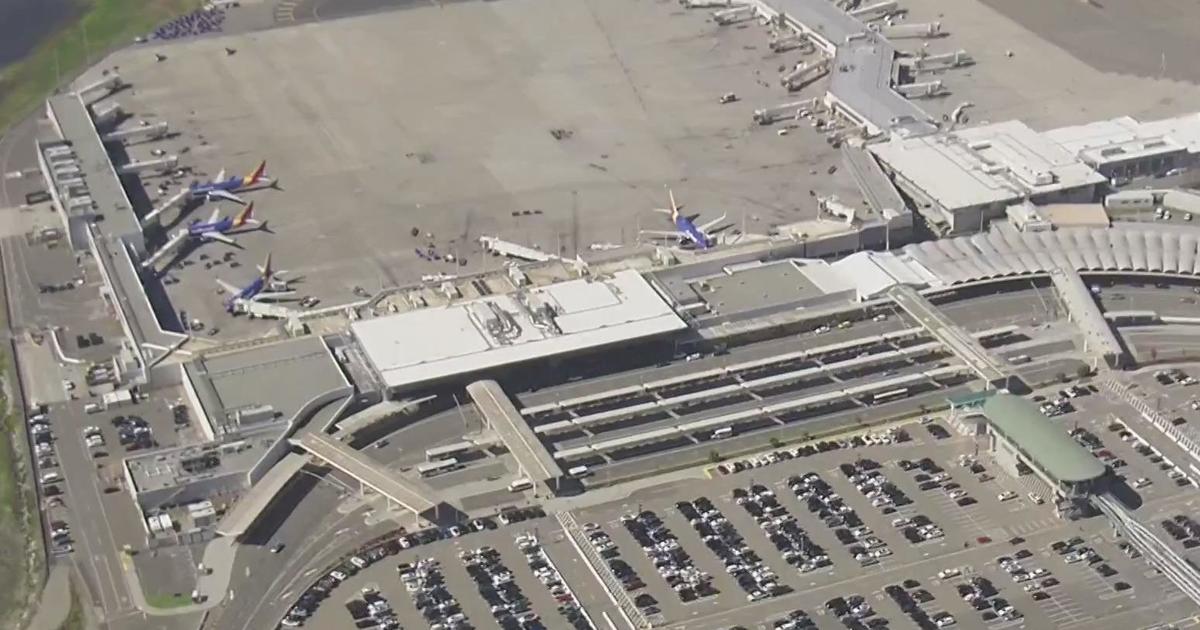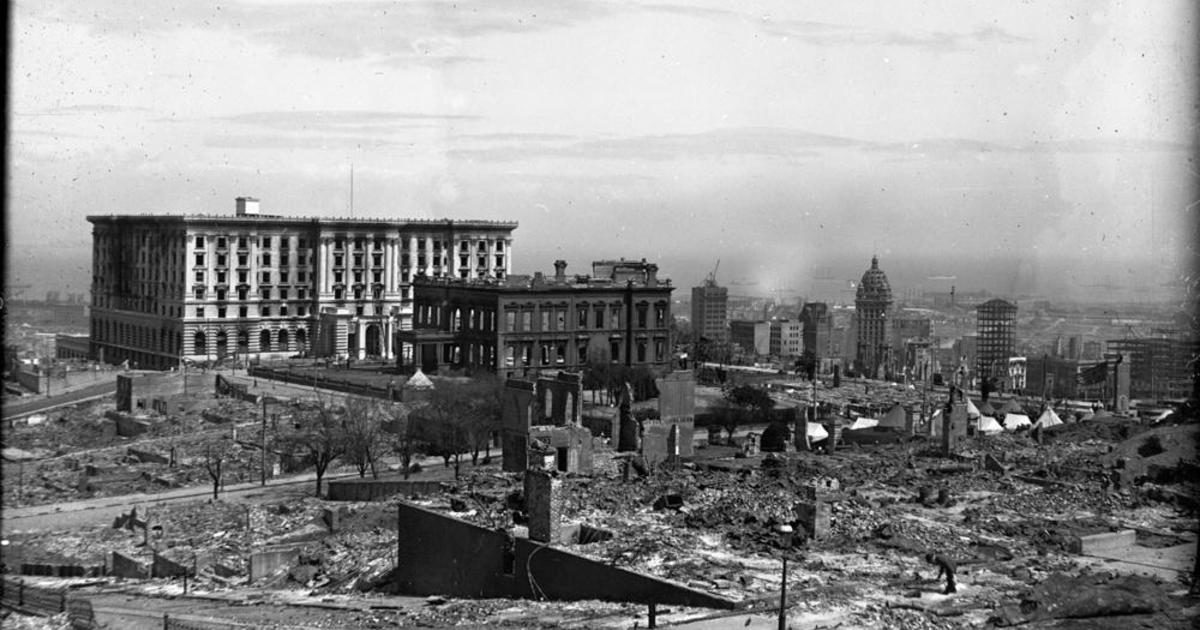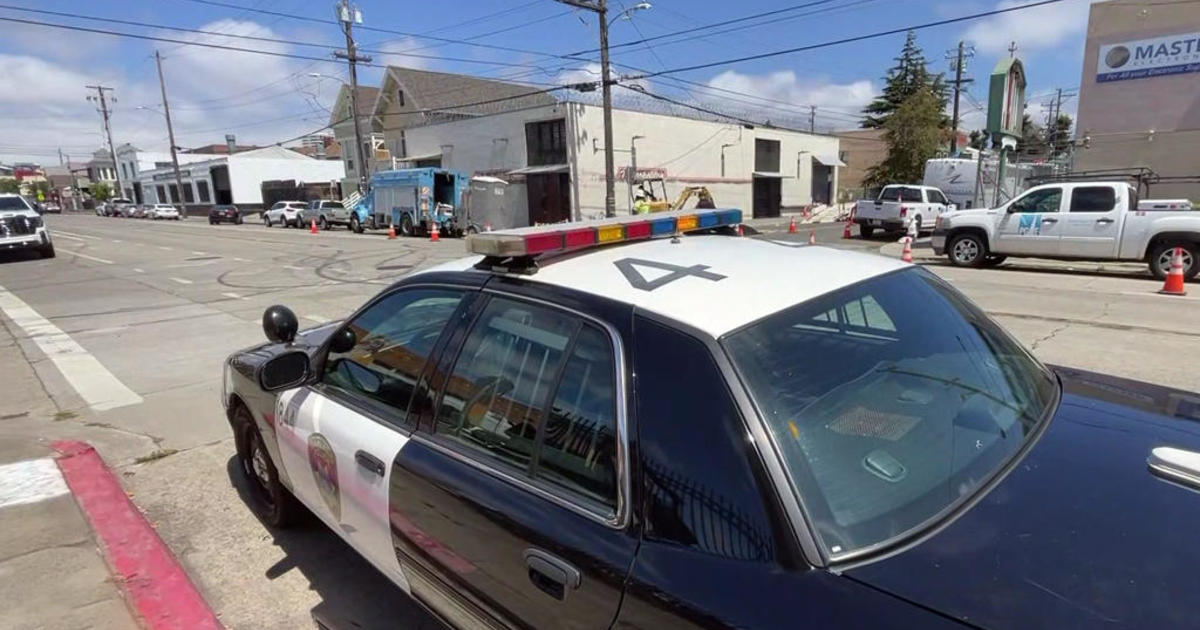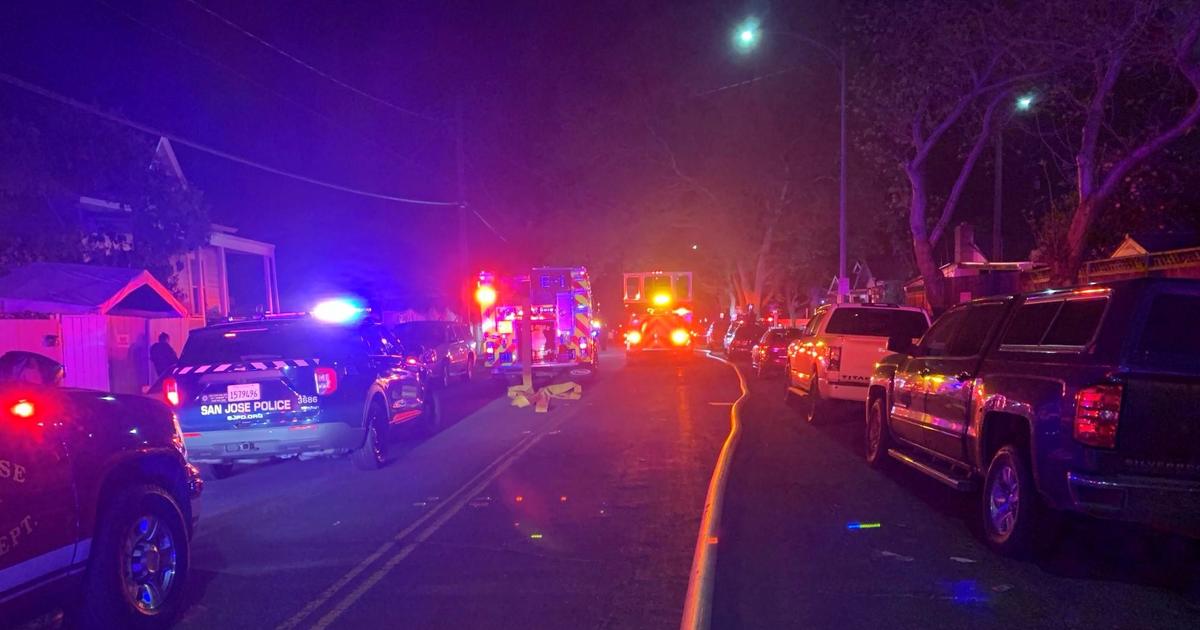Converted Warehouses Lifeblood Of Oakland Art Scene
OAKLAND (CBS SF) -- The smoke had barely cleared from the deadly fire that destroyed Oakland's artist collective known as The Ghost Ship claiming dozens of lives, and already the rush to lay blame for the tragedy was on.
Saturday morning, a few feet from the burned out site where the souls of at least 36 young people were eclipsed in a matter of minutes dozens of cameras were aimed at Mayor Libby Schaaf.
"Today, the District Attorney has activated a criminal investigation team," she said, carefully avoiding questions as to what that team would uncover. "You have to understand that the scope of this tragedy is tremendous."
The building did not have the proper permits for occupancy, the rave where dozens of young men and women gathered inside was an illegal gathering, the building's 'master tenant' had ignored warnings about the bohemian live-work space, no fire code inspections, no sprinklers, no egress, it made no sense.
And the death toll was still climbing.
For Schaaf, there are many more layers to this tragic story. As an artist and city leader, she must walk a fine line, balancing her authority and her commitment to the arts.
Oakland has always been a mecca for artists. As rents skyrocketed in San Francisco, and one by one, buildings were bought up, razed, renovated and then re-rented for ten times more, the steady creep of creatives across the bay became a deluge.
The result was very cool.
First Fridays – a monthly downtown gallery, bar and food crawl – were the norm by 2010. Neighborhoods once considered too risky soon had bike shops and communal gardens. For a time, it looked as though Oakland's artistic experiment was working. By 2013 the city heretofore considered San Francisco's ugly stepsister, was named the "most exciting city in the country" by the New York Times.
In 2014, a widely-circulated article titled, 'Oakland: Brooklyn By the Bay,' seemed to seal the deal. "The starving artist will literally starve in San Francisco," said John Hewitt, who works for Standard and Strange, a local men's clothier that caters to the cool. "Whereas they can come to Oakland and they might not live in the nicest part of town necessarily, but you can afford to live here."
Fast-forward to Saturday morning's press conference with Schaaf:
"You may know, that since I became the mayor of Oakland I have been passionate about preserving and lifting up the incredible creative community that makes this incredible city that it is. And the issue of creating safe, vibrant spaces for Oakland's artist community is a priority, not just for me as a mayor, but of this community," she continued.
Schaaf promised to unveil a plan within the next 48 hours to address the problem.
So what's the problem?
According to Rent Jungle, a website that consolidates all online rental listings across the U.S., in 2011, the average rent for a one bedroom in Oakland was $1,264. Across the bay in San Francisco, it was $2451.
Now, that number in Oakland has doubled to $2450. For a 2-bedroom, add another $600. Note, average rent in San Francisco is $3799, but Oakland's new number has topped out at what the bottom line in The City was five years ago.
Rents in Oakland's Fruitvale neighborhood, where Friday night's fire at the Ghost Ship broke out are lower, relative to the rest of the city -- around $1500. But city councilmember Noel Gallo says it won't last.
"All along Fruitvale, a lot of these apartments are bought from people outside of the country," he pointed out to reporters gathered outside the burned out Ghost Ship. "Across the street, Chinese investors bought the building for $10.5 million. People trying to live there, get kicked out and they raised the rent from $700 to $1300. So people who were living there are trying to identify other places – and these places that are done illegally."
"Right now in Oakland, we do have many outside investors that are here for the investment and they allow certain activities, until you catch it."
In the case of The Ghost Ship, by the time it was caught, it was too late.
Artist Shelly Mack lived at The Ghost Ship two years ago. Her rent was $700 a month, but some tenants paid more. She said she didn't know it was was illegal.
"They don't tell you that when you first move in. They sell you a line about it being an artist collective with events and exhibits. It was cheap, it was close, I wanted to do my jewelry again."
She said she realized it was not legal when the transformer blew and the electricity went out. The PG&E hookup was unauthorized. She said tenants lived with "intermittent heat and electricity for months."
Mack only stayed about four months, but she says there were more than a dozen tenants at any given time.
DIY warehouse spaces like The Ghost Ship are common. Artists live, work, exhibit and perform and support one another. To help pay the rent, they host events, like the techno dance party that was underway when the fire broke out at The Ghost Ship. Some are legit; many are not.
Gallo says there area about 200 warehouses "that have no papers, no permit, no fire code, nothing," in Oakland. He couldn't say how many have tenants.
"The reality is, there are many facilities being occupied without permits," said Gallo, who grew up in the Fruitvale. "They're occurring on Oakland's streets, especially in neighborhoods like mine."
Mack described The Ghost Ship as a "hellhole," filthy, with a labyrinth of wires running up and down the stairwells, propane tanks in the bathrooms, stray cats and fleas everywhere.
"If you complained, she said the manager, Derick Ion would kick you out. She said he and his wife would clean it up for parties, or when the owner came by.
"For us living there, it was chaos."
Mack claims the police were there every week responding to fights, thefts, even orgies.
"They knew this was going on."
Still, many live/work cooperatives are following the rules and there is a push to help others come into compliance before Friday night's fire gives way to a rush to judge, convict and condemn, literally.
Michael Shook, founder of NIMBY, an artist collective in West Oakland shared a Guide to Fire Safety in Industrial Spaces on Facebook, and offered to help anyone who was in a panic over the a potential crackdown on illegal live/work spaces in the wake of the fire.
"If anyone lives in a live work space and would like it inspected without worry of all hell breaking loose, contact me," Snook wrote on Facebook. "I can hook you up with a private professional that knows all the rules but doesn't work for the city of Oakland. There is a fee and all I ask is you do what he says. Please."
Still, others like Chris Dunn, fear the worst. He has been to events like the one at the Ghost Ship in the Fruitvale.
"There's going to be a draconian overreaction to shut everything down," he told the San Jose Mercury."That would only add to the tragedy."
Schaaf said the city was working on the new plan even before the fire and believes a solution to preserve and protect artist live/work spaces in Oakland is within reach.
"We're going to stay focused on accomplishing it in a way that makes sense both for Oakland and for all the different stakeholders involved," she said. "It is the incredible asset and beauty of our city, one that we cherish and one that has been so badly damaged by this tragedy."
CBSSF.com writer, producer Jan Mabry is also executive producer and host of The Bronze Report. She lives in Northern California. Follow her on Twitter @janmabr.



